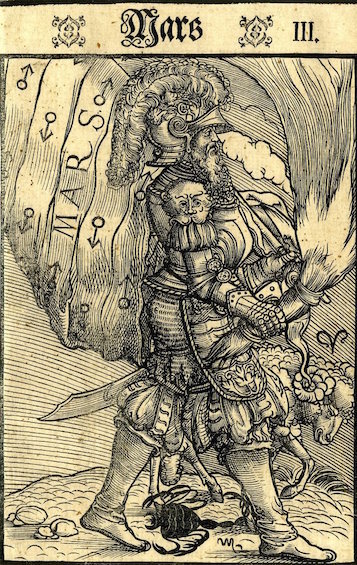Mudlark No. 57 (2015)
Der Widder
(Deutung eines jüdischen Antlitzes)
Du hast geerbt des grossen Widders Züge, Der schwarzumwollt mit Jakobs Herden zog. Selbst in der Wüste fandest du Genüge Am Distelgras, das sich im Winde bog. Hat dich, du gutes Tier, der Hirt gerufen, Kamst du gehüpft, hoch pochte dir das Herz. Oft tanztest du und scharrtest mit den Hufen Und davon stammt noch heut dein Hang zum Scherz. Doch stieg der Krieger mit gestählter Würde Zu Ross, die Lanze eingelegt zum Stoss, Dann drängtest du dich furchtsam in der Hürde Und bühtest matt und hoffnungslos.
The Ram
(A reading of a Jewish face)
You’ve inherited the great ram’s features, The black-wooled one that bred with Jacob’s herds. You found yourself satisfied in the desert, On the thistle weeds that bent in the wind. When the shepherd called you, good beast that you are, You came skipping, with your heart beating high. Often you would dance and your hooves could not wait— There comes your tendency to frolic now. But with a steeled majesty the warrior rose Upon his steed, his lance lowered for the jab, Then you timidly huddled inside the pen And there you baaed feebly and without hope.
Note: title, The Ram (Der Widder), among the many allusions here is the astrological, for the Age of Aries marked the beginning of the Jews as the chosen people. line 9, warrior (Krieger), i.e., Mars, the ruler of the sign of Aries. This late poem, from Werfel’s exile years, is a self-reflection, for he had been passive and silent—and counseled the same—in condemning the first wave of the Nazi persecution of German Jews in the 1930s.

Sixteenth-century woodcut of Mars, Aries, and Scorpio
James Reidel | Contents | Mudlark No. 57 (2015)